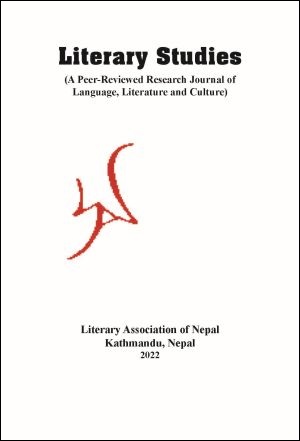Performing for Social Justice: Efficacy of Political Theatre in Nepal and the Philippines
DOI:
https://doi.org/10.3126/litstud.v35i01.43674Keywords:
Nepali theatre, social change, call for democracy, Philippino theatreAbstract
Theatre plays a vital role in the struggle for democracy, functioning as an alternative medium for presenting social problems “of and to” the people and proving its efficacy as a powerful creative force in unravelling the hidden truths of repressive regimes. This article examines and compares the role of theatre in a Nepali and Filipino context, in particular its deployment in response to repressive regimes, and argues that theatre is both adaptable and efficacious as a tool for social and political justice. Although never colonised, Nepal was under the control of the Rana Oligarchy for over one hundred years (1846-1951). This period of oligarchical rule was followed by three decades of totalitarianism under King Mahendra’s party-less Panchayat system (1960-1990). Despite and because of this climate of political brutality and oppression, theatre and performance traditions endured. These traditions made “the invisible visible,” serving to awaken the population to their democratic rights. In the Philippines, theatre and performance traditions have been used to push back against centuries of foreign influence. More recently, these traditions have been deployed in response to the authoritarian rule of President Rodrigo Roa Duterte, in particular his aggressive war on drugs. As this study shows, theatre has been a powerful means to fight against autocratic polity and restoration of democracy in Nepal and colonial forces as well as dictatorship in the Philippines.
Downloads
Downloads
Published
How to Cite
Issue
Section
License
© Literary Association of Nepal (LAN)

